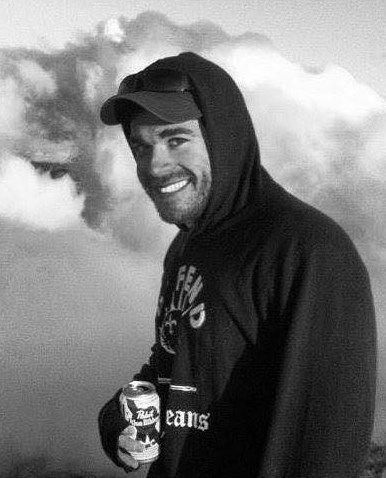Superman was tragically paralyzed in a riding accident before eventually dying from complications associated with his paralysis. His passing caused immeasurable grief to those touched by his life.
No, I’m not referring to Christopher Reeve, who died in 2004, nine years after a horseback riding accident left him a quadriplegic. I’m talking about Brian McKenna, an Everyday Superman man left a quadriplegic by a mountain biking accident in June of 2015. He passed away earlier this month just shy of his 33rd birthday.
Brian, the son of my friend and insurance industry colleague Tom, was working for Goldman Sachs in Salt Lake City when his biking accident occurred. A Long Island native and graduate of Tulane University, Brian had moved to Utah to work for Goldman Sachs and take advantage of all the exhilarating outdoor activities that the state had to offer. At one point he had aspired to be a trader, but working long, sedentary hours while figuratively handcuffed to a computer terminal awash with the anxiety that comes from making big bets with other people’s money just wasn’t for him. He decided that he wanted to seize the day every day, to enjoy life and all it had to offer without deferring his dreams until some indeterminate future date, as many of us do.
I never got to meet Brian, and I know the cliché is bandied about freely, especially after someone dies, but I’ll say it anyway: It would’ve been a privilege. Nonetheless, not knowing Brian in person didn’t prevent him from inspiring me and many others. He touched a lot of lives in his short time on earth.
Brian and his best friend Jackson met in college at Tulane where they became huge New Orleans Saints fans. After Brian’s accident, Jackson reached out to Saints quarterback Drew Brees, whose sincere and generous response would have been heartwarming coming from anyone, but it was even more so coming from an NFL superstar. Ellen DeGeneres also became a big supporter of Brian’s and had him on her show several times. If you’re not in the mood for crying, don’t watch this moving tribute that Ellen paid to Brian on her show recently:
https://www.facebook.com/ellentv/videos/10156647774987240/UzpfSTEwNzMwNDQxNzY6MTAyMTM1NTEwMDA2NjQwNDI/
I saw a video in which Brian described how he felt seconds after his catastrophic biking accident. He said something like, “As I lied there unable to move for a few minutes, I said to myself, OK, if this is the way it’s going to be, I’m going to make the best of it.”
And he did.
Another of Brian’s good friends from Tulane went on to become a doctor and, fatefully, she was working at the Salt Lake City hospital where Brian was taken on the day of his accident in 2015. She said that Brian just didn’t achieve what was possible with his level of spinal injury, but far exceeded that goal and “redefined what was possible.” As a result of Brian’s inspiring example, that friend of his is now dedicating her medical career to spinal medicine.
At Brian’s first memorial service in Alta, Utah (he also had one on Long Island and another is coming up in late May in New Orleans; that one will involve a procession, essentially a traveling party with a band), a town nestled in the Wasatch Mountain range, his doctor friend read for the crowd what she called “Brian McKenna’s 11 Rules.”
I won’t recite all 11 for you (although they are all worthwhile), but I will share the four that stood out for me.
First, “Tell people in your life that you love them.”
Second, “Don’t take your skis, or anything else in life, too seriously.” [Brian apparently did some damage to a set of skies while walking up concrete steps with them one time and then said, as he took them off, “Hey, they’re only skis.”]
Third, “Work hard at whatever you’re doing.”
And fourth, “Life your life, you never know what’s going to happen. Find time to live your life every day, no excuses.”
Having not known Brian, I still get the feeling that those four rules were central tenets of his time on this earth.
The German playwright and poet Bertolt Brecht said “Do not fear death so much but rather the inadequate life.” Brian’s time on earth may have been, in one sense, inadequate, but the life he lived certainly wasn’t.
Fittingly, Christopher Reeve once said, “I think a hero is an ordinary individual who finds strength to persevere and endure in spite of overwhelming obstacles.”
Brian was, no doubt, a hero. May we all find inspiration in his life.


